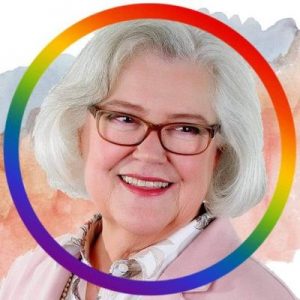Takeaway
To give excellent care to patients, we must attend to our own well-being. Start by connecting with yourself and your feelings.

Lifelong Learning in Clinical Excellence | November 30, 2021 | 1 min read
By Cheryl Barnes-Neff, PhD, MDiv, RN, President, Laurel Oak Group, Online Education & Training
A couple of years ago, my organization was going through a Medicare audit, and I was tasked with coordinating the effort to copy charts, write supporting letters, and get everything sent on deadline. It was stressful to say the least, and I was frustrated as it felt like some of the managers weren’t taking the project seriously. I resented having to “nag” them to meet the requests. During a meeting, I snapped at one of my co-workers and made her cry.
I felt terrible! I was embarrassed by my behavior that was definitely not in alignment with my values. The irony was that I’d been on a weekend retreat just a couple of weeks before where the emphasis was on “you can’t pour from an empty cup,” and the importance of kindness. How could I be running on empty already?
I began thinking about, and even questioning the premise of that empty cup. With all of the caregiving responsibilities clinicians have, from the time we wake up until we go to bed, we’re also asked to find time to have energy to fill our own cup. Here’s how I try to do this:
CARE
Connect
Connect with yourself. When washing your hands, feel the warm soapy water. Take a mindful breath or two and notice the sensations in your body.
Assess
After connecting with your body, you might be able to more readily assess how you’re feeling and address those emotions.
Respond
Recognize your feelings and shift a reaction to a response. Always respond with respect toward yourself and others.
Evaluate
We’re all human, and even with the best of intentions we’ll still make mistakes. Evaluating my day is important, not as a chance to beat myself up for those mistakes, but as a way to look at what went right, what was good and beautiful, and to celebrate even a single mindful breath.
While there was no excuse for my behavior, I’m grateful that my coworker gave me the chance to apologize and make amends. While my cup had been emptied that day, I’m finding more days where the flow of giving and receiving is more sustainable and nourishing.
This piece expresses the views solely of the author. It does not necessarily represent the views of any organization, including Johns Hopkins Medicine.

